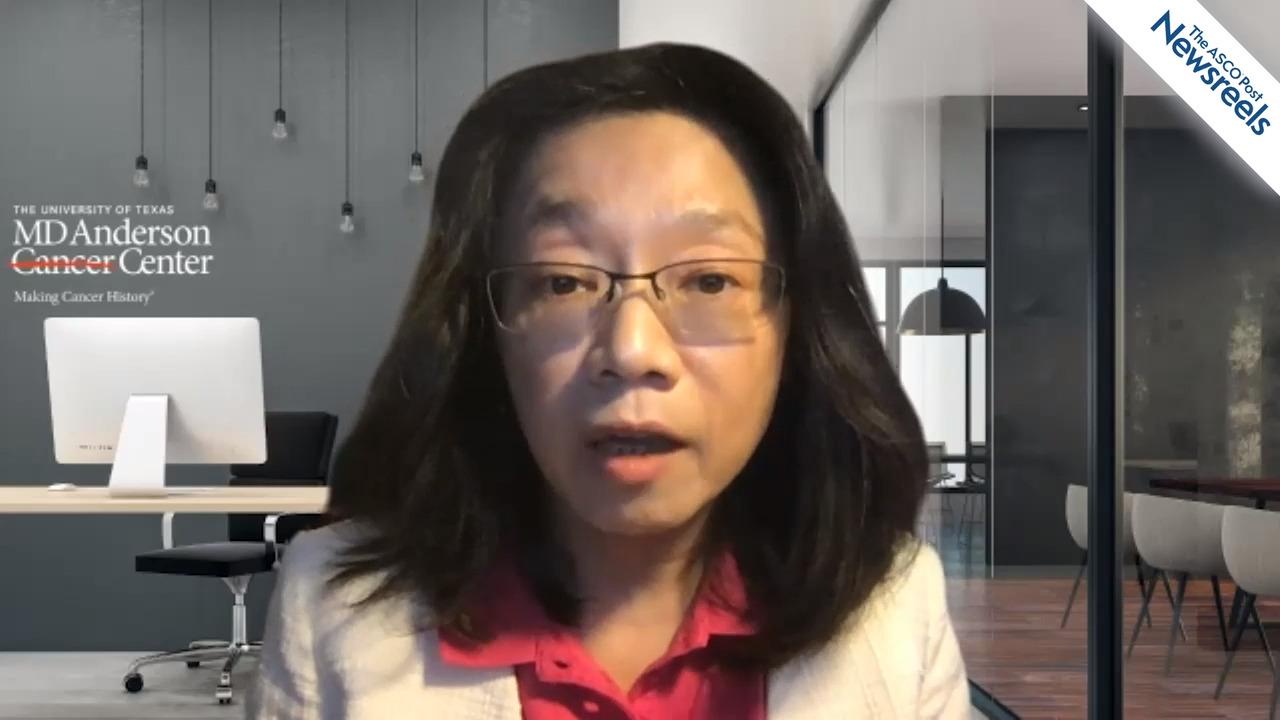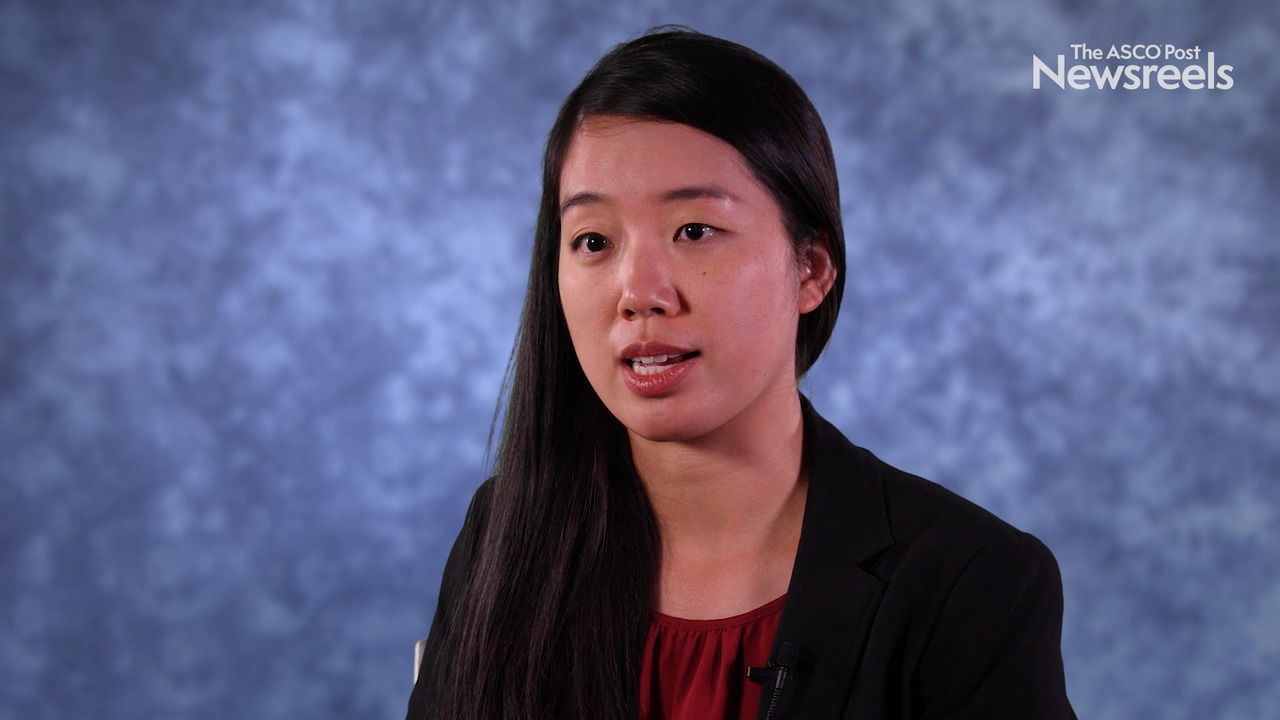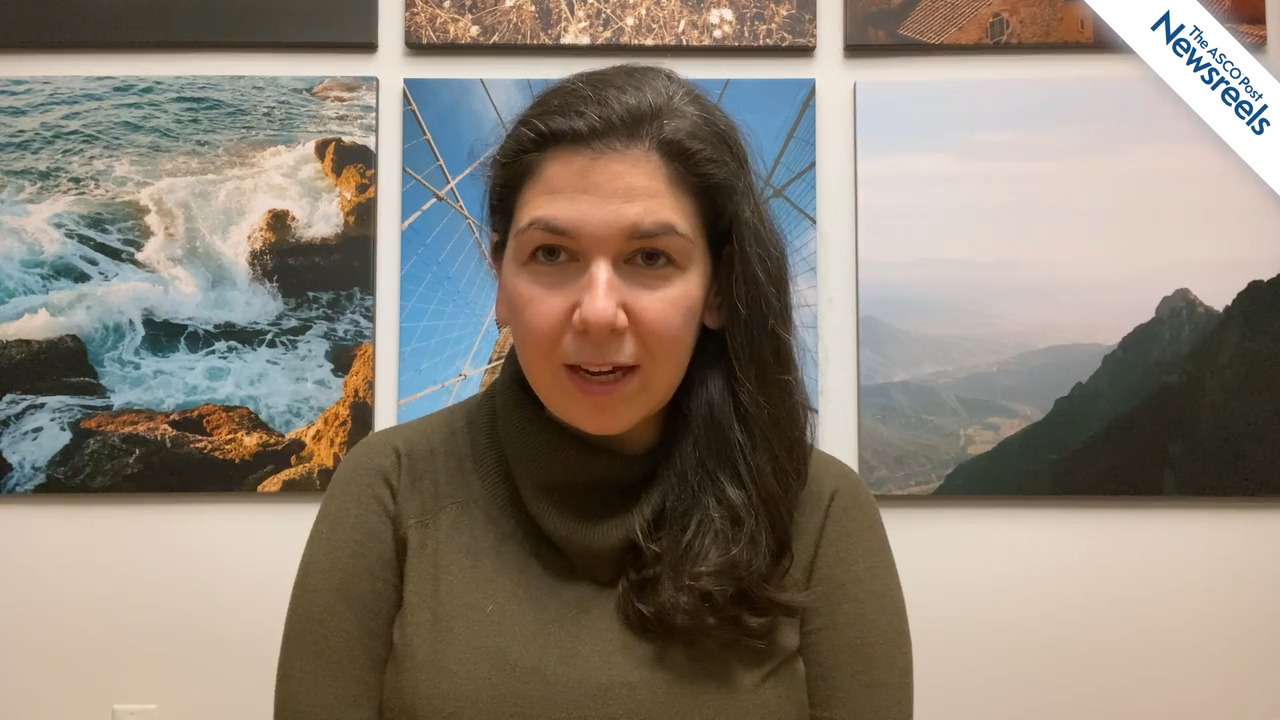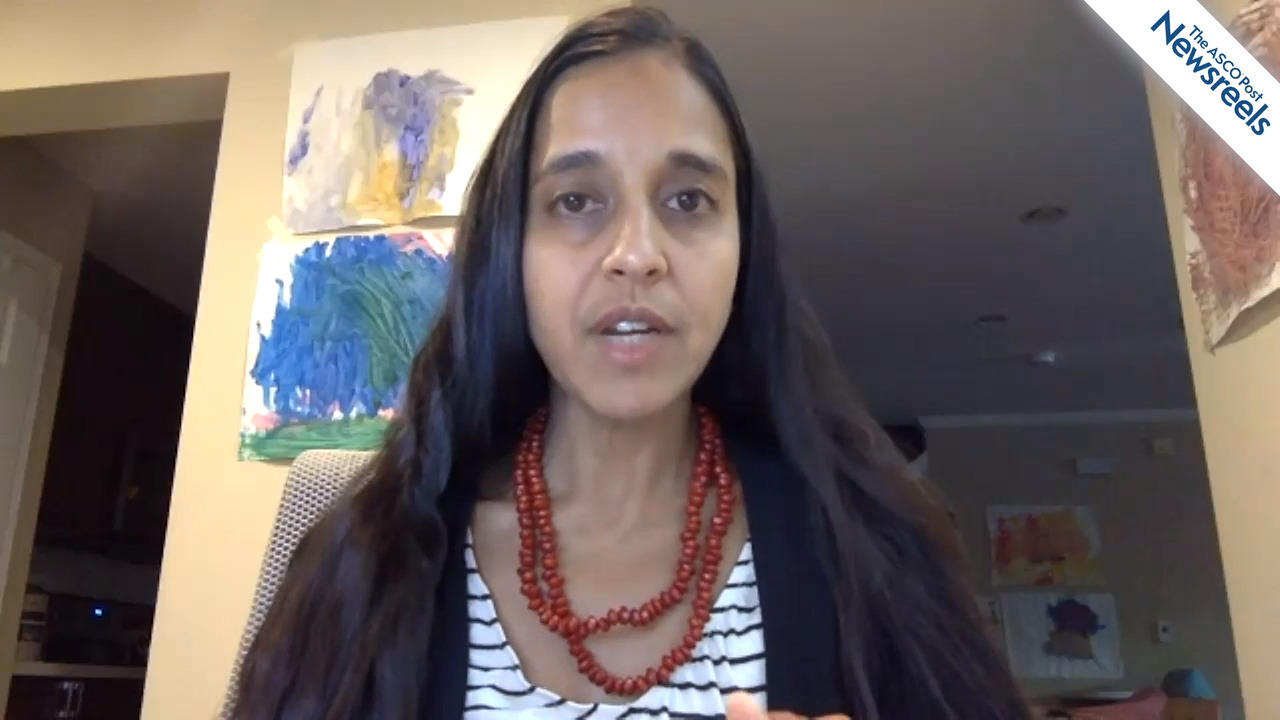Leticia Nogueira, PhD, MPH, on the Association of Medicaid Expansion and Early Mortality Following Lung Cancer Surgery
2021 ASCO Quality Care Symposium
Leticia Nogueira, PhD, MPH, of the American Cancer Society, discusses results from a study designed to evaluate the impact of Medicaid expansion under the Affordable Care Act (ACA). In Medicaid-expansion states, mortality among patients after lung cancer surgery decreased from 2.4% before the ACA to 0.8% after the ACA, with no significant change in non–Medicaid-expansion states.
The ASCO Post Staff
Benjamin W. Corn, MD, of Shaare Zedek Medical Center in Jerusalem, discusses hope: what it takes for hope to thrive; how he and his colleagues are helping patients and providers become more hopeful through workshops; and his collaboration with the Southwest Oncology Group to aid patients, through hopefulness, to better adhere to treatment regimens.
The ASCO Post Staff
Tina Shih, PhD, of The University of Texas MD Anderson Cancer Center, discusses the rising cost-sharing requirement from private insurance, which has worsened the financial burden for patients with cancer. She believes that cost-containment policies alone may not be enough to ease this hardship.
The ASCO Post Staff
Jenny Jing Xiang, MD, of Yale University School of Medicine, discusses a universal, standardized clinical trial prescreening protocol, which streamlined research recruitment and was associated with yearly increases in patient enrollment at the Veterans Administration (VA) Connecticut Cancer Center. The Center became the top-accruing VA site for National Cancer Institute–sponsored trials and was ranked in the top 10 enrolling sites nationally for VA and non-VA hospitals.
The ASCO Post Staff
Morgan R.L. Lichtenstein, MD, of Columbia University Medical Center, discusses a single-center prospective study examining the complex relationship between time to oral oncolytic receipt and clinical or process-related factors, such as prior authorization, diagnosis, and insurance type.
The ASCO Post Staff
Manali I. Patel, MD, MPH, of Stanford University School of Medicine, discusses data suggesting that community health workers and innovative payer models can better engage low-income and minority patients with cancer, improve their health-related quality of life, and reduce unwanted and unnecessary acute care.





